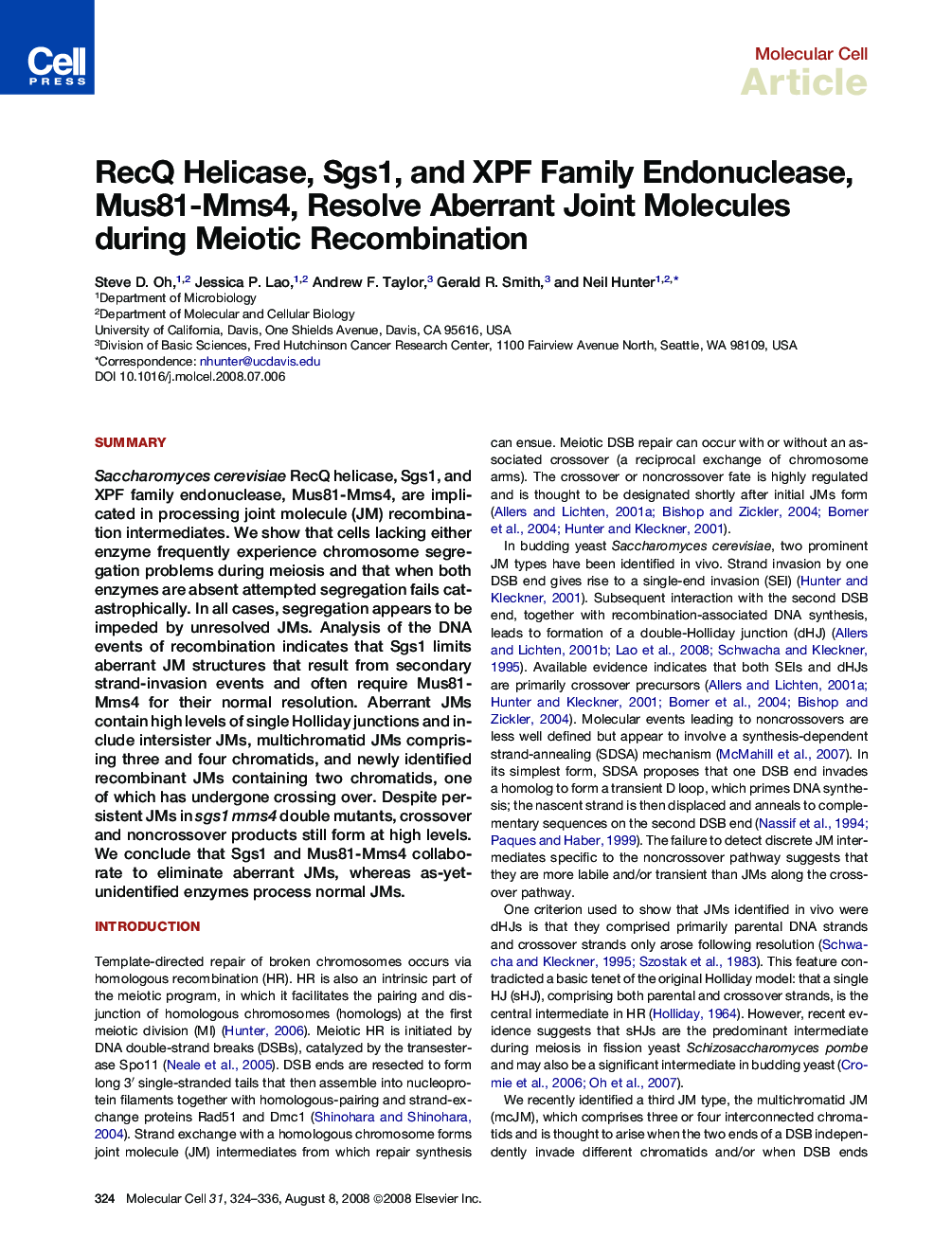| Article ID | Journal | Published Year | Pages | File Type |
|---|---|---|---|---|
| 1997405 | Molecular Cell | 2008 | 13 Pages |
SummarySaccharomyces cerevisiae RecQ helicase, Sgs1, and XPF family endonuclease, Mus81-Mms4, are implicated in processing joint molecule (JM) recombination intermediates. We show that cells lacking either enzyme frequently experience chromosome segregation problems during meiosis and that when both enzymes are absent attempted segregation fails catastrophically. In all cases, segregation appears to be impeded by unresolved JMs. Analysis of the DNA events of recombination indicates that Sgs1 limits aberrant JM structures that result from secondary strand-invasion events and often require Mus81-Mms4 for their normal resolution. Aberrant JMs contain high levels of single Holliday junctions and include intersister JMs, multichromatid JMs comprising three and four chromatids, and newly identified recombinant JMs containing two chromatids, one of which has undergone crossing over. Despite persistent JMs in sgs1 mms4 double mutants, crossover and noncrossover products still form at high levels. We conclude that Sgs1 and Mus81-Mms4 collaborate to eliminate aberrant JMs, whereas as-yet-unidentified enzymes process normal JMs.
